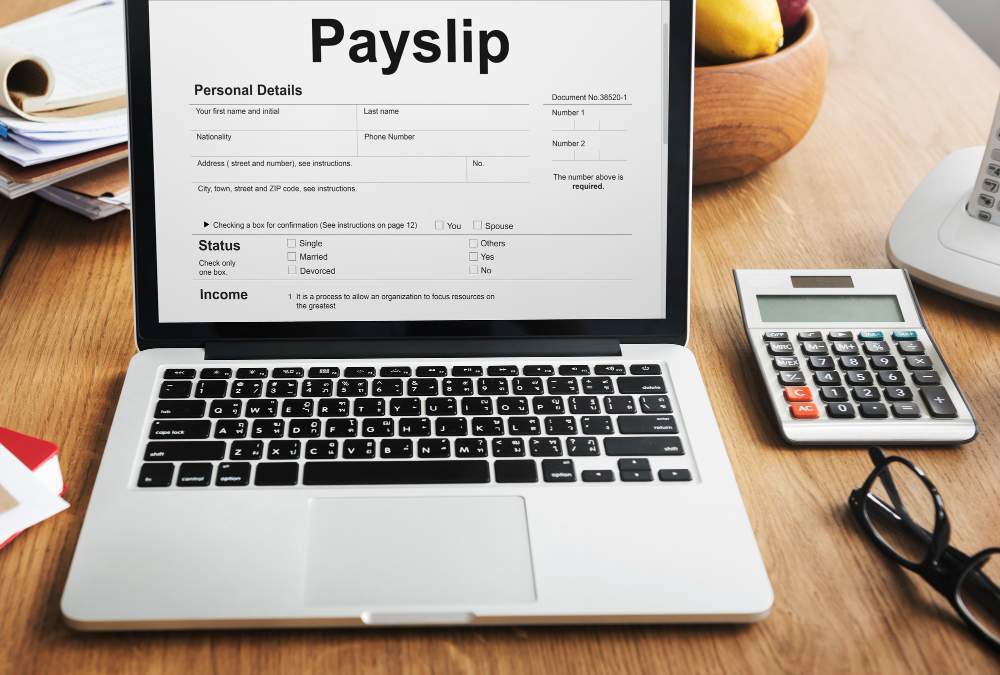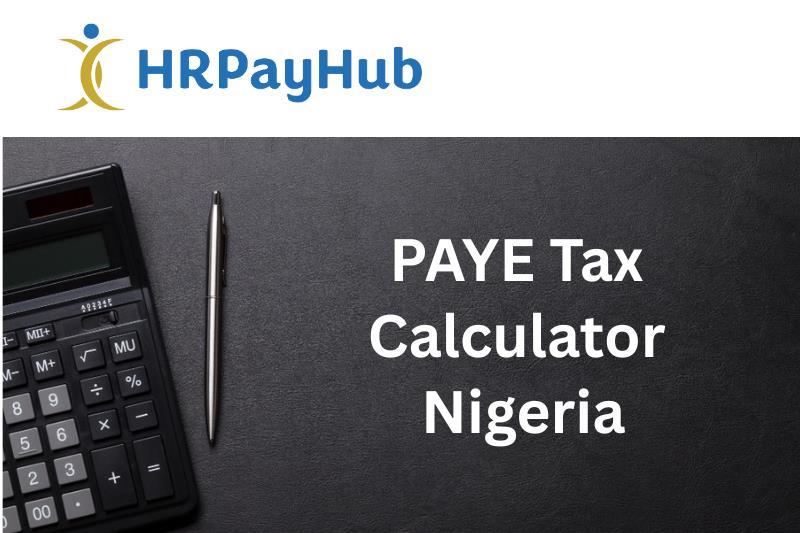
Job scams in Nigeria are rising fast. Learn how to spot fake job offers, avoid recruitment fraud, and find real jobs in Nigeria safely through trusted platform
Tola had been unemployed for eight months.
Every morning in Lagos, he woke up, opened his phone, and searched “jobs in Nigeria” on Google. He checked WhatsApp groups, Telegram channels, Instagram pages, and every job site he could find. One afternoon, a message popped up in a group chat:
“A reputable company in Lagos is urgently recruiting. Salary: ₦250,000–₦300,000 monthly. No experience required. Limited slots. Send your CV and pay ₦7,500 for your form and medicals.”
The message came with a neat logo, a scanned “offer letter,” and screenshots of supposed staff testimonials: “I got this job last month, thank you sir!”
It looked promising. It looked like hope.
Tola borrowed money from a cousin and paid the processing fee. Then another ₦5,000 for documentation. Then ₦3,500 for mandatory training. A week later, the phone number stopped going through. The WhatsApp group disappeared. The HR manager vanished.
No job. No refund. And now, more debt.
If this sounds familiar, it’s because Tola’s story is painfully common. Recruitment fraud in Nigeria is rising, and scammers are getting smarter. Fake job portals, social media adverts and upfront payment scams are now one of the fastest-growing fraud tactics targeting Nigerian job seekers.Also, fake job postings, especially on social media are luring desperate job seekers with high pay and vague details. According to the Nigerian Communications Commission (NCC), nearly 60% of Nigerian internet users have encountered some form of online scam, while EFCC and other agencies say cybercrime, including job scams, now costs victims tens of billions of naira.
So how do you protect yourself as a Nigerian job seeker in this environment? How do you tell a real job vacancy in Lagos from a trap?
This article breaks it down in simple, practical language: how these job scams work, the real damage they cause, how to spot fake job offers in Nigeria, and how trusted platforms like Delon Jobs help you find genuine jobs in Nigeria without paying a kobo to scammers.
Why recruitment scams are growing in Nigeria
To understand why job scams in Nigeria are so common, you need to look at three realities: high unemployment, digital growth, and desperation.
Nigeria has a very young population and a tough labour market. Every year, hundreds of thousands of graduates and NYSC members join millions of others already searching for work. That pressure to get something or anything at all, makes people vulnerable to offers that look too good to be true.
At the same time, internet penetration and smartphone use are high. Most job seekers now rely on online job sites, WhatsApp, Telegram, Facebook, X (Twitter), and Instagram to find job vacancies in Nigeria. Scammers know this. They use fake websites and professional-looking job adverts with cloned logos to appear legitimate. BusinessDay describes how fraudsters now run full-blown “fake job portals” and pay for social media ads, promising high salaries and fast employment with minimal requirements.
A Reventify article on job scams in Nigeria notes that scammers commonly: pretend to be real HR managers, ask for confidential details, demand money, or lure people into Ponzi-style “work from home” tasks. Jobberman has been warning about fake jobs and scam recruiters for years, showing screenshots of typical messages used to trick people into paying for interviews and training.
On top of that, official bodies like EFCC, the Nigeria Police, and major organisations such as GTBank and the British Council have had to release multiple warnings about fake recruitment portals and fraudulent offers made in their name.
In short, the internet has made it easier to access jobs in Nigeria, but it has also made it easier for scammers to pretend they are offering them.
How job scams typically work and why they feel so convincing
Most recruitment scams follow a pattern, even if the details differ.
A typical scam might begin with a WhatsApp broadcast, a Telegram post, a Facebook or Instagram ad, or even an SMS that most likely comes in this form but not limited to:
Work from home and earn ₦300,000 monthly, no experience needed.
Oil and gas company recruiting urgently, multiple positions, free accommodation.
Government agency recruitment, limited slots, call this number.
Earn money as a student, without any experience
The scammers then do a few things very well:
-They use urgency and excitement.
They say things like there are limited slots, “urgent recruitment,” or “today only.” They want you to act fast and think later.
-They copy real brands.
They steal logos from major banks, NGOs, telcos, or government agencies. EFCC, NSCDC, FAO, and others have publicly warned about fake recruitment portals and letters using their names.
-They promise big salaries for little work.
Some adverts offer ₦200,000–₦300,000 for roles that usually pay far less, especially entry-level jobs. Others target remote jobs in Nigeria, promising foreign currency for very simple online tasks.
-They eventually ask for something.
That something may be:
Money for medical test fee, form fee, training fee or registration fee.
Sensitive personal data; BVN, full bank details, ID, ATM card info.
Or even your physical presence in a strange, unsafe location.
A BusinessDay opinion piece explains that upfront payment scams now range from ₦5,000 to as high as ₦500,000, with scammers disappearing once payments are made. Nigeria Communications Week describe how social media job scams often use WhatsApp numbers, poor grammar, and pressure tactics to push people into paying quickly.
More disturbing, Bulwark Intelligence warns that some employment scams in Nigeria have been used to lure victims to isolated places, leading to kidnapping and ransom. On the surface, it can be seen as fake interviews that falsely raises the hopes and extorts unseeming individuals, but it is also a serious threat to personal safety.
Scammers are professional manipulators. They mix just enough realism (company names, half-true benefits, realistic job titles) with emotional pressure to make even smart people fall for it.
The real damage: more than just losing money
When people think of fake job offers in Nigeria, they often focus on the money lost. But the damage goes much deeper.
There is the financial side, of course. Some victims lose ₦10,000 or ₦20,000. Others lose their entire savings or borrowed money. EFCC and the Nigerian Communications Commission estimate that online fraud; including job scams, costs Nigerians well over ₦100 billion in a single year.
Then there is emotional damage. Imagine being unemployed, finally believing your life is about to change, telling your family you have gotten the job, only to discover it was a lie. That heartbreak can create deep shame, anger, and loss of confidence. Some people give up job hunting for months. Others become so paranoid that they miss real opportunities.
Career-wise, scams waste precious time. While victims are busy attending fake interviews, and trainings or waiting for refunds that never come, real job vacancies in Nigeria are closing. This delay can affect your career growth in Nigeria for years.
There is also the risk of identity theft. When you send scans of your passport, NIN, BVN or other bank details to strangers, those details can be used to open fake accounts, commit financial fraud, or implicate you in crimes you know nothing about.
And finally, there is physical risk. Meeting unknown supposed HR managers in unmarked buildings, hotel lobbies, or remote locations can be dangerous, especially if you go alone. Security agencies regularly warn that some employment scams double as traps for robbery or kidnapping.
So when we say “fake offers, real damage,” it’s not just a catchy title. The damage is very real.
How to spot fake job offers in Nigeria (without becoming paranoid)
The goal is not for you to fear every job vacancy in Lagos or delete every message you see. The goal is to develop a sharp internal alarm system, a way to scan job adverts and quickly decide, if the job alert looks legit or if something is not right. One thing about spotting these fake job offers is that the red flags appear repeatedly, they all use same format but different styles.
Here’s how those signals look in real life, described in narrative rather than dry rules:
You see a job advert promising huge pay for very basic work: “Earn ₦300,000 monthly, no experience, work 3 hours a day.” Your first reaction should be Why? Real companies do not pay that kind of money for zero skill or effort, especially for entry-level or graduate jobs in Nigeria.
You get a job offer for a role you never applied for, for your safety's sake, Halleluyah Challenge miracle should not be the first thing on your mind. Out of nowhere, someone messages you on WhatsApp or Telegram claiming to be HR from a big company, telling you that you’ve been pre-selected and only need to confirm by paying a small fee. Authentic companies rarely send offers to people who never went through an application or interview process.
You notice the contact details don’t match the brand. Maybe the email is a free Gmail or Yahoo address instead of a company domain. Maybe the phone number looks like a personal line with no official switchboard.
You are asked to pay anything to get or keep the job. It might be called an application fee, medical fee, form fee, training fee, or even a deposit. Legitimate employers may require you to do medicals or background checks, but they pay their own vendors. When a supposed employer is focused on collecting your money before giving you a contract, it’s a strong sign of a recruitment scam.
You can’t find the company online, or what you find doesn’t match. Many scam adverts use phrases like “a reputable company in Lagos” without giving a real name, website, or office address. Even when they do, a quick Google search sometimes reveals warnings from previous victims, or a new fake website created just a few months ago with no real history.
You are asked to meet in strange locations with no official signage, often with large crowds and very busy settings. Some victims report being called to interview in hotel lobbies, uncompleted buildings, or compounds with no company name, then pressured to pay for tests or training on the spot.
You feel rushed and unable to ask questions. Scammers thrive on speed and secrecy. A real recruiter encourages clarity; a fake one tries to keep you confused.
When two or three of these signals appear together, pause. Breathe. Don’t let desperation silence your instincts.
How to verify job offers and recruiters (step by step)
The good news is: you don’t have to be a cybersecurity expert to protect yourself. A few simple checks can dramatically reduce your risk of falling for a scam.
Start with the basics. Search for the company name on Google. Does it have a real website? Does the website look professional, with clear information, a history, and proper contact details? Or is it a one-page site with poor spelling, no staff information, and no real address?
Check the email address. Authentic companies usually use corporate emails (like name@company.com), they always emphasise that they never send job offers from non-official domains. Many scam messages come from free email addresses or slightly altered versions of real domains. Visit the organisation’s official careers page, if they have one. Many international organisations and big companies list vacancies only on their websites and tell applicants to ignore any other channels. FAO Nigeria, for example, had to issue a scam alert about fake offers, stressing that all real vacancies appear on their official site and that they never charge fees.
Look for scam alerts online. Sometimes victims or the organisations themselves have already posted warnings.
If the job is advertised as a government job or NGO job in Nigeria, be extra careful. EFCC, ICPC, Police, NSCDC and other agencies have all had fake recruitment portals set up in their names. Real government recruitment is usually announced through official websites and verified social media accounts, not only in random WhatsApp groups.
Finally, consider where you found the job. Platforms like Delon Jobs specialise in connecting verified employers with Nigerian job seekers and clearly state that they do not charge candidates to apply. Delon Jobs is consistently recognised as Nigeria’s top job portal and #1 IT recruitment agency, with a broad database of genuine jobs in Nigeria across many industries. Using such trusted job websites reduces your exposure to random, unverified adverts.
What to do if you think you’ve been scammed
If you realise you’ve fallen for a job scam in Nigeria, you might feel ashamed or angry. Try not to let that stop you from taking action. You’re not alone, and your response can protect future victims.
First, stop further payments or communication immediately. Don’t let them convince you to send one last fee to recover your earlier payments.
Second, keep all evidence. Save screenshots of chats, phone numbers, bank account details, transaction alerts, and email messages. This is the information law enforcement and your bank will need.
Third, notify your bank if you sent money. In some cases, they can attempt to trace or block suspicious accounts, especially if you act quickly.
Fourth, report the scam. You can:
File a complaint with the Economic and Financial Crimes Commission (EFCC), which regularly investigates online and employment scams. (efcc.gov.ng)
Report at the nearest police station, especially if there is any physical threat involved.
Fifth, warn others. Share your experience (without exposing sensitive data) in trusted forums, social media, or with friends. Organisations publicly warn about job scams because people spoke up.
Lastly, and importantly, don’t let the scam define you or put you down. Many smart, careful people have been scammed, especially when unemployed or under pressure. Use the experience as a learning point, not a life sentence.
Conclusion: Your dream job should not start with a scam
The rise of job scams in Nigeria is one of the ugliest side effects of our digital age. On one hand, the internet has opened doors to remote roles and international opportunities which gives fast access to jobs in Nigeria. On the other, it has given scammers powerful tools to impersonate companies, fabricate offers, and prey on Nigerian job seekers who are simply trying to build a better life.
You cannot control what scammers do. But you can control how you respond.
Most importantly, you can choose to search for jobs in Nigeria through platforms that put your safety first.
That is exactly what Delon Jobs is built for. With free registration, daily-updated vacancies, and regular career webinars designed specifically for Nigerian job seekers, Delon Jobs gives you a safer, smarter way to chase your dream role.
Before you click on that random WhatsApp advert or pay into a stranger’s account, take a different first step: visit jobs.delon.ng, create your profile, and start your job search from a place of security, not fear.



















